Calendar Chapter Notes | Mental Maths - Class 1 PDF Download
| Table of contents |

|
| Why do we need a Calendar? |

|
| Calendar 2024 |

|
| Writing a Date |

|
| Historical Preview |

|
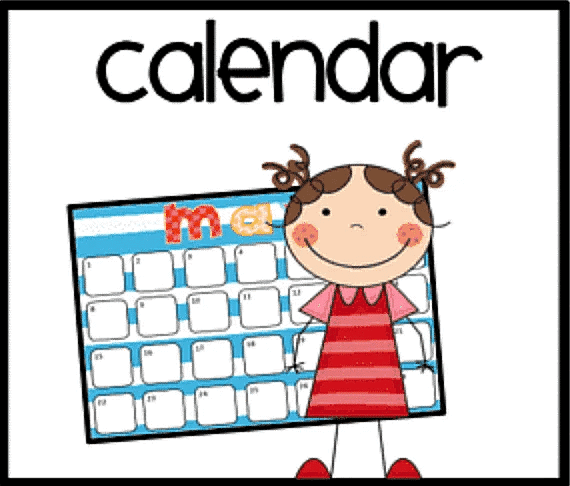
Why do we need a Calendar?
Why do we need a Calendar?
A calendar is a system used to organize and record time, typically based on the cycles of the Earth's movements, such as the rotation of the Earth on its axis and its orbit around the Sun.
- Calendars help us keep track of days, weeks, months, and years, allowing us to plan and schedule events, religious observances, agricultural activities, and more.
- Calendar is a table showing the days, weeks and months of a year.
- It displays all the dates and days of the week. There are 7 days in a week.
Days of Week in Order:
- Monday is the first day of the week and Sunday is the last day of the week.
- There are 12 months in a year.
- There are 365 days in an ordinary year and the month of February has 28 days. But every fourth year, February has 29 days and the year has 366 days. It is called a leap year.
- The calendar given below shows the months of the year in order:
Calendar 2024
- Months are also identified by their position in the year
- All the months do not have equal number of days. Some have 30, some have 31 and one month has even less.
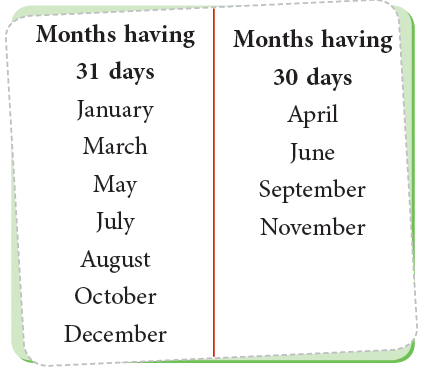
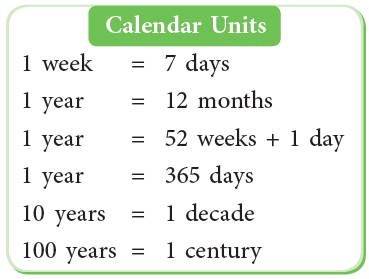
Month having 28 or 29 days is February
Writing a Date
Writing a Date
- A calendar date helps us to identify a specific day represented within the calendar.
For example: The first Monday of January 2019 as given in the calendar for 2019 is identified as - 7th January 2019 which can be written in short form as 7/01/2019 or 07-01-2019 or 07.01.2019, where 01 represents the month number, 2019 the year and 07 the day of the month.
- The format can be written generally as: dd/mm/yyyy, where dd– day, mm– month, yyyy– year
- Let us see what the date on the third Sunday of August 2019 is?
The day on the third Sunday is 18. The month number is 08 and the year is 2019.
∴ Required date is 18/08/2019 or 18.08.2019.
A calendar helps us to know about days, weeks, months and year.
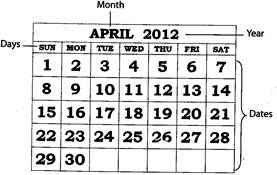
We read the calendar to tell the days and dates.
Historical Preview
- In previous time, people used to tell time by looking at the sun’s shadow.
- People used to meet at down, when the sun came up, or at noon, when the sun was highest in the sky, or at sunset, when the sun went down.
- The time from one new moon to another was a month, and the time from one spring to the next was a year.
For example, 15th January 2024 falls on Monday.
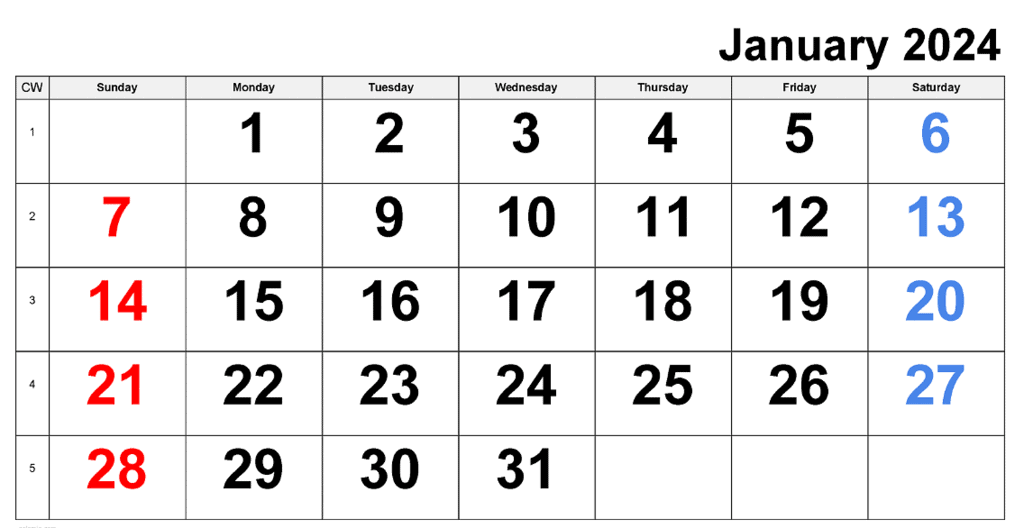
A date is written in the following ways:
- Date/month/year e.g. 15/01/2024 Or
- Date-month-year e.g. 15-01-2024 Or
- Date month' year e.g. 15+th January' 2024
Now try writing your birth date in your notebook using different formats.
READING A CALENDAR
Find the date | find the day on which the date is falling | Month and year is given at the top | Combine all of them in the form: date/month/year |
|
39 videos|158 docs|19 tests
|




















